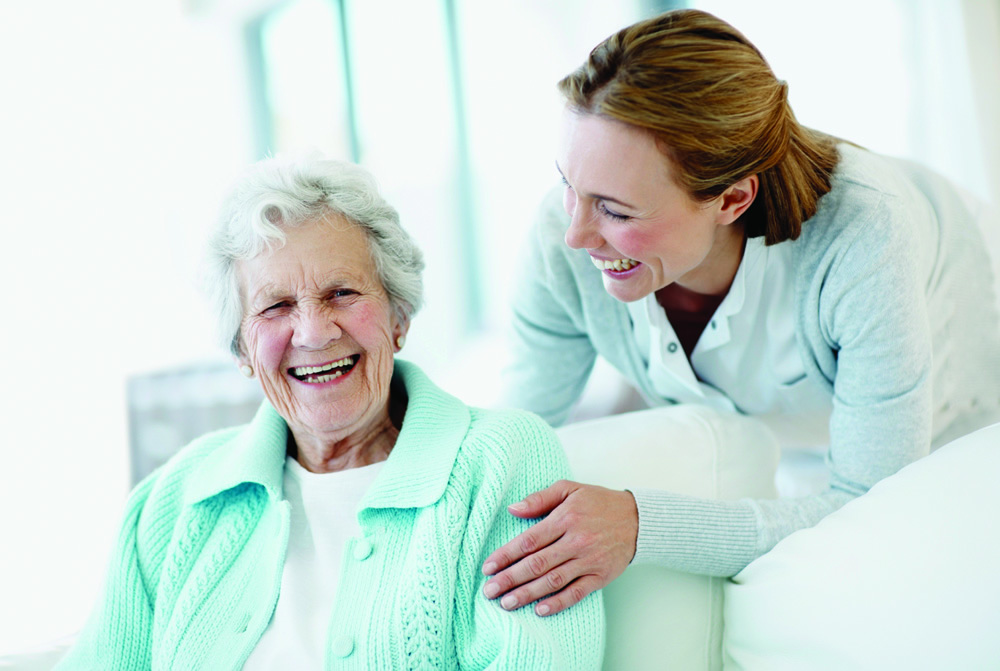Senior communities are no longer just destinations for those seniors looking to slow down. In fact, current trends suggest exactly the opposite to be true. People over 60 are choosing to move earlier than ever to senior communities for accessibility to personal-care and medical services, transportation, security and to be closer to peers who share their passion for life.
Personal-Care and Medical Services
Is your parent falling?
Is your loved one wearing the same clothes when you visit? Can they bathe, groom adequately and launder clothing?
Is your aging parent remembering to take medications correctly, with the right dosage and at the right times? Are medications expired?
Is s/he able to operate appliances safely? Do they remember to turn appliances off when they are finished cooking?
Is their home equipped with safety features such as grab bars and emergency response systems?
Do they have a plan in place to contact help in case of an emergency?
It is impossible to predict what your loved one’s situation will be as they age – except to know that chances are good that, barring a dramatic event, they will continue to live with increasing frailty and progressively declining abilities that will require more help than family members can provide.
Senior communities offer seniors help with some of their activities of daily living (ADL’s) —things like cooking meals, toileting in the middle of the night, keeping house, showering and transportation to appointments. Senior communities also offer varying assistance in meeting medical needs. This assistance may include transportation to medical appointments, emergency alert pendants and on-staff nurses, CNA’s and med techs. In addition to these services, general staff are trained to be on alert for the needs of those in the community.
Transportation
Is your loved one driving?
Should they be driving?
Do they have alternate means of transportation?
Is there someone readily available to provide for ongoing transportation needs: medical appointments, hair dresser, shopping, field trips, etc?
Transportation is a key issue. Your loved one may live in an area where someone must drive them to appointments, shop, visit friends and social activities. If your friend or family member finds themselves less comfortable with driving, they may find themselves relying more and more on family and friends to get around. It may be difficult for them to visit others, go to activities they enjoy, or keep doctors’ appointments.
Senior communities generally offer transportation to meet their needs. This will provide the senior a feeling of independence as they are able to make decisions to meet their needs in association with a community that is specifically created for this purpose.
Security
Security is highly valued by seniors and their families. Seniors are often concerned about a fall or intruders and may be wondering when they will receive the next visit from family or friends. Family members are thinking about the same things. The overcrowded schedules of our daily lives keep us from doing everything we would like to do.
How will you know if your parents need help in a sudden, medical emergency?
Do they have an easily accessible network of friends, or are they isolated from others most of the time?
Is your parent in a vulnerable position to become a victim?
Security has become a significant selling point of senior communities. Senior communities often offer the safety and security of 24-hour support and access to care. Day or night, help is only a phone call away. Even in areas with very low crime rates, residents take comfort in knowing there are cameras in the parking lots, a single entrance into the community and that staff members are willing to ask strangers to identify themselves.
However, privacy and independence are encouraged. Most communities will develop a personalized plan that meets your needs and accommodates your personal abilities, while giving you the freedom to do what you can for yourself.
Socialization
Planned social activities and the opportunity to spend time with peers is mentioned repeatedly by seniors when asked what is most important to.
Do they have an easily accessible, network of peers, or are they isolated from peers most of the time?
It is a simple question that is at the heart of the emotional well-being of our loved ones. Adult children are often filled with guilt for moving their parents out of their home. That is, until they see them flourishing in a new environment and participating in activities they haven’t enjoyed for years.
Senior communities have a group dining area and common areas for social and recreational activities. Field trips, cards, bingo night, group exercising, singing, holiday specific activities, etc. can be the spark seniors yearn for that enrich their lives and allow them to get the most out of their golden years.
Making the decision to move a parent into a senior community is one of the hardest and most heart-wrenching decisions of your life. If it keeps your parent(s) healthy, safe and happy, then it is probably for the best for the parent, the caregiver and the family.


Recent Comments